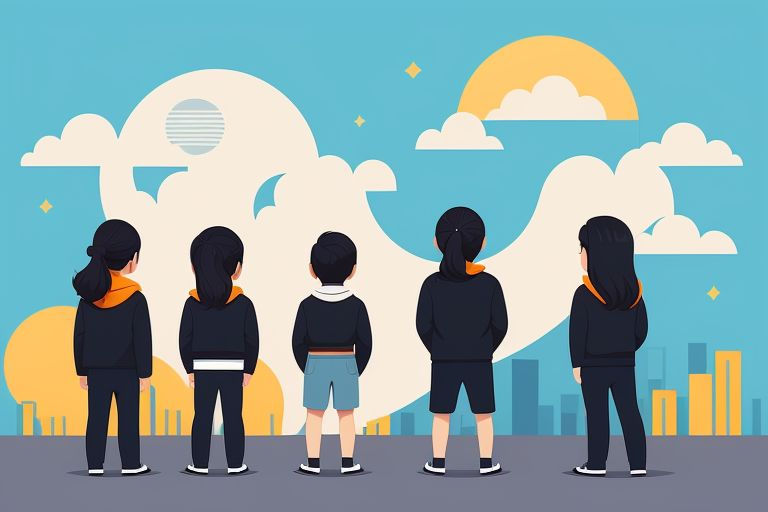The Unwritten Chapter: The Vulnerable Youth for a Brighter Future
- Satrangi Gurukul
- Oct 22, 2024
- 3 min read

As I sat in the class, watching a group of young people struggle to make sense of the world around them, I couldn't help but wonder: are we doing enough to prepare them for the challenges of the 21st century? The answer, I realized, was a resounding no. The traditional notion of literacy, which once served us well, is no longer sufficient. Our youth require a new set of skills to navigate the complexities of this rapidly changing world.
I recall a conversation with a teacher who shared with me the story of a student named Meena. Meena had grown up in a low-income household, facing countless challenges that threatened to derail her academic journey. Yet, despite the odds, she persevered, driven by a fierce determination to succeed. But as she entered high school, Meena began to struggle. The curriculum, once engaging and challenging, now seemed dull and irrelevant. She felt lost, unsure of how to navigate the digital landscape, and uncertain about her place in the world.
Meena's story is not unique. Many vulnerable young people face similar challenges, struggling to find their footing in a world that seems to be moving at breakneck speed. As educators and parents, we have a responsibility to empower them with the skills they need to thrive. But what does that look like?
For starters, we need to redefine what we mean by literacy. Gone are the days when reading and writing were enough. Today's youth require a broader range of skills, including digital literacy, critical thinking, collaboration, creativity, and emotional intelligence. They need to be able to navigate the digital world with ease, to analyze information, to work effectively with others, and to think outside the box.
But literacy is only half the battle. Our youth also need to develop personal resilience, the ability to bounce back from adversity, trauma, and stress. This requires a deep understanding of emotional regulation, self-awareness, and self-care. We need to teach them how to recognize and manage their emotions, to develop a strong sense of identity and purpose, and to cultivate healthy habits that will serve them well throughout their lives.
So, how do we do it? How do we empower vulnerable young people with the skills they need to succeed? For me, the answer lies in the way we approach education. We need to move away from traditional teaching methods and towards a more project-based, collaborative approach. We need to give our youth the freedom to explore, to create, and to learn from their mistakes.
We also need to prioritize mindfulness and self-care. We need to teach our youth how to manage stress and anxiety, how to cultivate a growth mindset, and how to prioritize their well-being. We need to create safe spaces for them to express themselves, to share their fears and doubts, and to receive constructive feedback.
As I look back on Meena's story, I realize that she was not alone. There are countless young people out there, struggling to find their way in a world that seems determined to hold them back. But I also know that with the right support, the right skills, and the right mindset, they can overcome any obstacle. They can thrive in this complex, ever-changing world.
Sarangi Gurukul has started an innovative program that is designed to help parents and teachers gain a deeper understanding of their child's strengths, weaknesses, and inclinations. By uncovering their child's hidden potential, parents can create a personalized learning plan that sets them up for success.
Are you ready to take the first step on a journey that could change your child's life forever? Discover your child's hidden potential with Satrangi Gurukul's Vidyaarambh program. Visit https://satrangigurukul.wixsite.com/onlineschool/vidyaarambh to learn more and get started on this life-changing journey.
-Satrangi Gurkul



Comments